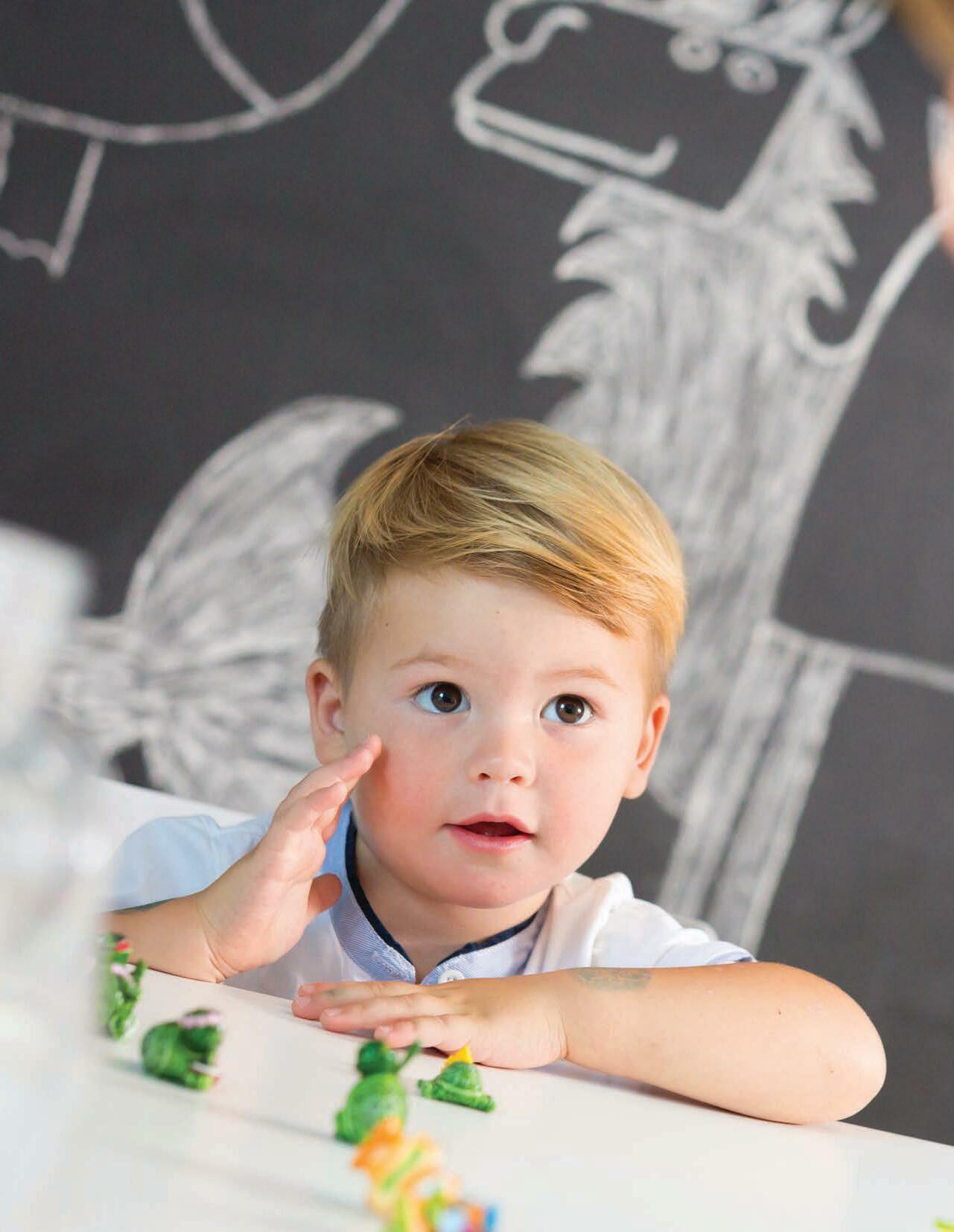
3 minute read
TOUGH LOVE
DON'T BE AFRAID TO RESTRICT THEIR USE OF TECHNOLOGY
To open this month’s education special, one expert discusses the issue of independence and our children, and why it’s never a bad idea to say no on occasions
As I am writing this, a few days before Christmas (thanks to the quirks of early deadlines in the publishing world), I’m surrounded by wrapping paper for our children’s presents, looking forward to the prospect of watching Love Actually this evening, all five of us snuggled on the sofa and all the joy and warmth of family life abounding.
Fast forward to February and, again, we see the shops full of red hearts on cards and chocolates and inflated prices of red roses. Yes, Valentine’s Day is here, again.
In reality, every parent knows that being a Mum or Dad can never always be Instagram perfect or the promise of everyday being wonderful. We all know that parenthood comes with enormous responsibilities and a great many challenges along the way. We agonise over decisions. What is best for each child? We worry, we want to keep them safe, but know that we can’t wrap them up forever; we feel guilty about whether we have made the right decision – but, above all, what we all want more than anything is for our children to be happy and fulfilled.
It seems timely to reflect on a bit of tough love. Yes, tough love. I almost feel that I should be a little guilty for even suggesting such a thing. I’m sure we are all glad that we no longer live in the days of Victorian values and child rearing where they were seen and not heard. However, do you think perhaps, if one reflects, things have now swung a little too far the other way? Children are often given so many choices – often becoming the King, Queen or CEO of their own small worlds!
Of course, children should have opportunities to express their own thoughts and ideas, to be involved, within reason, in appropriate decisions. It is right that, as they become older, gradual steps of independence should be taken, but letting the genie out of the bottle too quickly can create unsettled children, at the very least.
Drawing boundaries, where children know where the parameters exist, can o er children a sense of security. Far from feeling that children should be involved in every choice that is o ered to them, learning to make a decision within secure boundaries will create more secure children.
Don’t be afraid not to be your child’s best friend – you are the adult, the parent and you know what will be best for them, for the time being. With love, say no when you need to do so. Sometimes they don’t like us, but they always love us and that is perfectly okay.
Then, one day, as your older children stride out into the world on their own, perhaps in late teens and beyond, something rather amazing and transformative can happen. All the boundary laying, the “be in by x o’clock” and so on, begins to fall away quickly, there is a mutual sense of friendship and respect and you are into a new phase – a phase of truly unconditional friendship. It is wonderful!
We will always be their parents, but look forward to the wonderful relationships of the future. It is worth taking the time to pace things gradually.

YOU CAN GRADUALLY BUILD UP YOUR CHILD'S INDEPENDENCE SO THEY ARE WELL SET FOR UNIVERSITY
Sue Laidlaw is founder of Laidlaw
Education LLP. For 30 years, Sue and her team have o ered educational advice, lessons and courses for children of all ages through their centres, including Laidlaw Hall, a specialist centre for children with Dyslexia and the Laidlaw Virtual Academy. For more information, call 020 8487 9517 or visit laidlaweducation.co.uk










